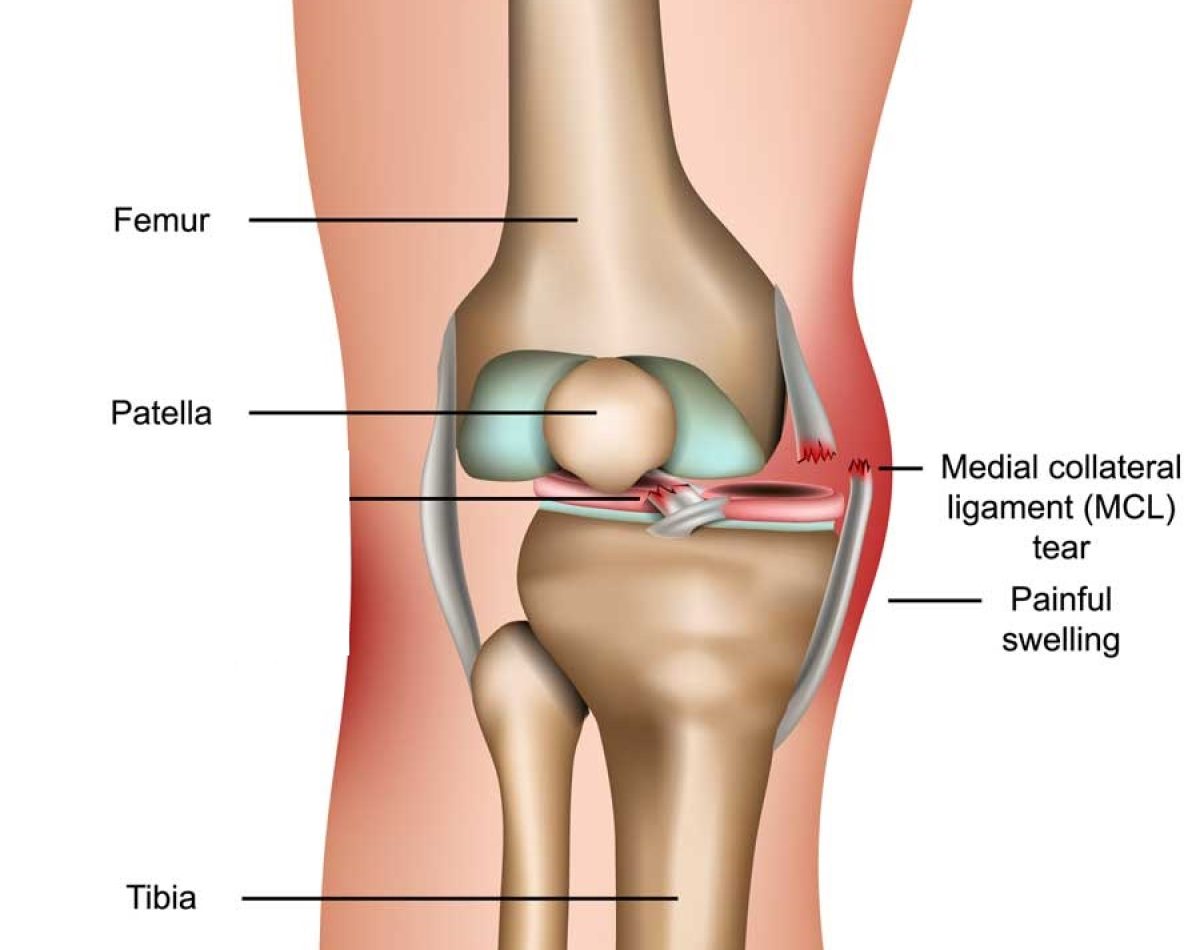MCL Tear: Medial Collateral Ligament Tear
An MCL tear is a common knee injury, especially in sports like football, basketball, and skiing. Most of the time, surgery isn’t needed, but it might be an option for severe cases.

What is an MCL Tear?
An MCL tear happens when the ligament on the inner side of your knee gets damaged. Ligaments are strong tissues that hold your bones together. The tear can be partial (some fibers torn) or complete (ligament torn completely).
Symptoms of an MCL Injury:
✓ Pain:You might feel pain on the inner side of your knee, especially when you move it or put weight on it.
✓ Swelling:Your knee may swell up, making it feel stiff and uncomfortable.
✓ Instability:Your knee might feel shaky or like it’s going to give out when you walk or stand.
✓ Difficulty Moving:It could be hard to bend or straighten your knee because of pain or stiffness.
✓ Bruising:You might see bruising around the inner side of your knee.
✓Popping Sensation:Some people feel or hear a popping or snapping sound when the injury happens.
If you have these symptoms after hurting your knee, it’s important to see a doctor for help.
Diagnosing MCL Problems
1. History:Your doctor will ask about the injury and how you’re feeling.
2. Physical Exam:They’ll check your knee’s movement and stability.
3. Imaging Tests:X-rays, MRI, or ultrasound can show how bad the injury is and help plan treatment.
Home Treatment for an MCL Tear:
✓ Rest:Avoid activities that make the pain worse or strain your knee.
✓ Ice:Put ice packs on your knee to reduce swelling and pain. Do this for 15-20 minutes every few hours.
✓ Compression:Wrap your knee with an elastic bandage to support it and reduce swelling.
✓ Elevation:Keep your knee elevated above your heart to lessen swelling.
✓ Pain Relief:Take over-the-counter pain relievers like ibuprofen or acetaminophen as directed.
✓ Gentle Exercises:Do gentle knee exercises recommended by your doctor or physical therapist once the pain goes down.
✓ Supportive Devices:Use crutches or a knee brace if your doctor suggests to protect and support your knee while walking.
✓
Follow-Up Care:Go to your appointments with your doctor to check how your knee is healing and adjust treatment if needed.
Can MCL Tears Heal on Their Own?
Healing will depend on the grade of injury. In many cases, a minor MCL injury can heal on its own. You can aide the recovery with R.I.C.E. or other nonsurgical treatments.
A complete MCL tear will require surgical intervention. Your knee doctor will diagnose your MCL injury and provide treatment based on severity level.
Can I Walk with a Torn MCL?
If you have a Grade 1 MCL tear, you may still be able to walk with some pain. A grade 2 tear may make it somewhat difficult to walk. With a grade 3 tear, it will be extremely painful and difficult to walk. If you think you may have an MCL tear, it is best to seek the help of a knee doctor.
When to Contact an Expert like Dr. Vishal Mandlewala
Call an expert like Dr. Vishal Mandlewala if you have an MCL tear and:
✓ Feel severe pain or swelling in your knee.
✓ Have trouble moving or putting weight on your injured leg.
✓ Feel your knee is unstable or gives way.
✓ Hear popping or snapping sounds during the injury.
✓ Notice numbness, tingling, or changes in the shape of your knee.
✓ Symptoms don’t get better with home treatment.
Dr. Vishal Mandlewala at Renison Knee and Shoulder Clinic can provide personalized guidance and treatment options tailored to your needs.












